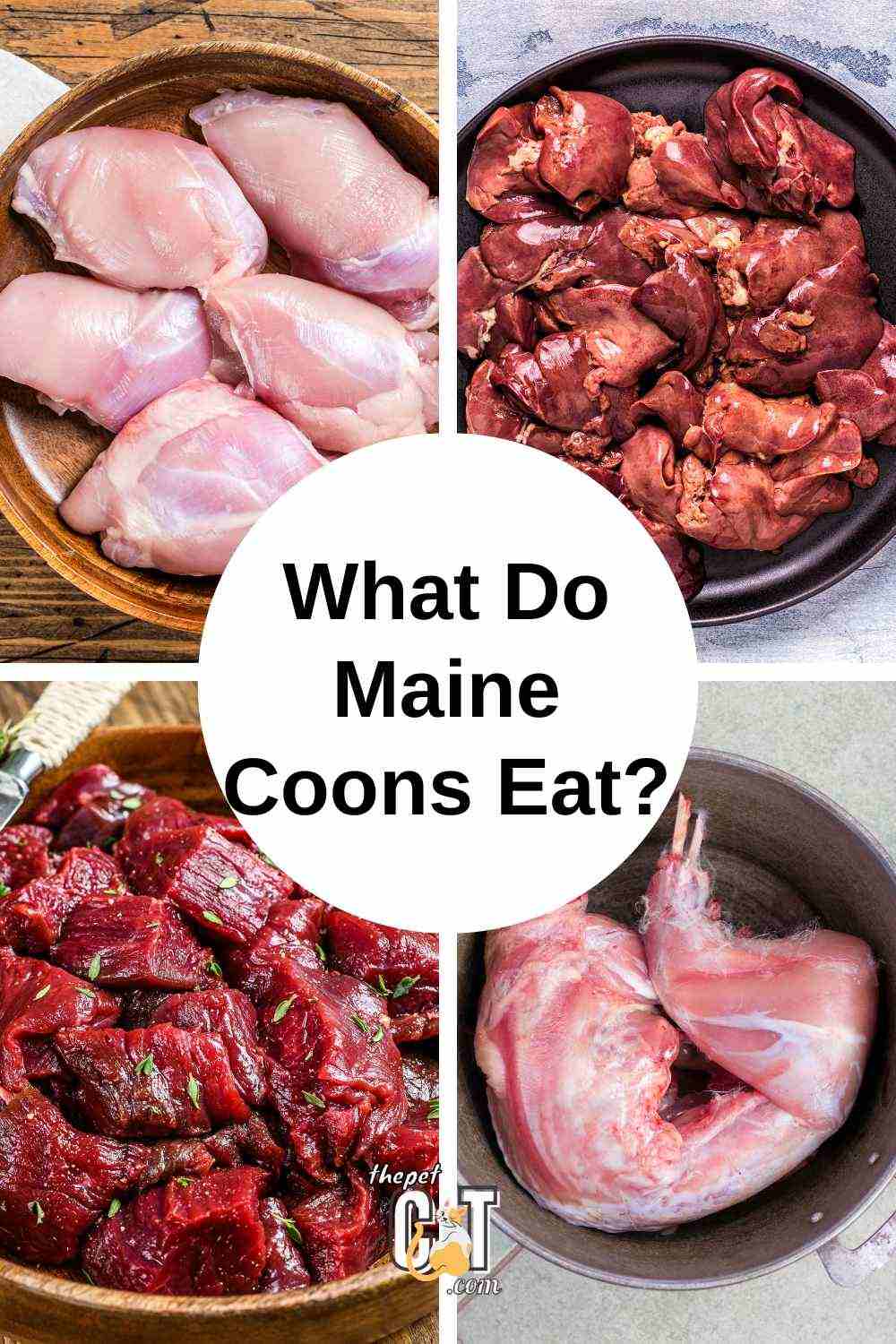Maine Coon cats enjoy a variety of foods, including chicken, fish, and wet and dry food. Because they’re big and playful, they need lots of protein from meat to keep them energetic. Also, you can feed them cooked meat as well.
A well-balanced diet promotes overall health and happiness. It’s like offering them the finest of both worlds: delicious cat chow and meat treats. And don’t forget, regular visits to the vet help you know exactly what your Maine Coon needs to eat to stay strong and lively!
15 Foods Maine Coon Cats Love to Eat
Maine Coon cats eat a range of foods. Here are the top 15 meals that Maine coon cats enjoy.
1. Chicken
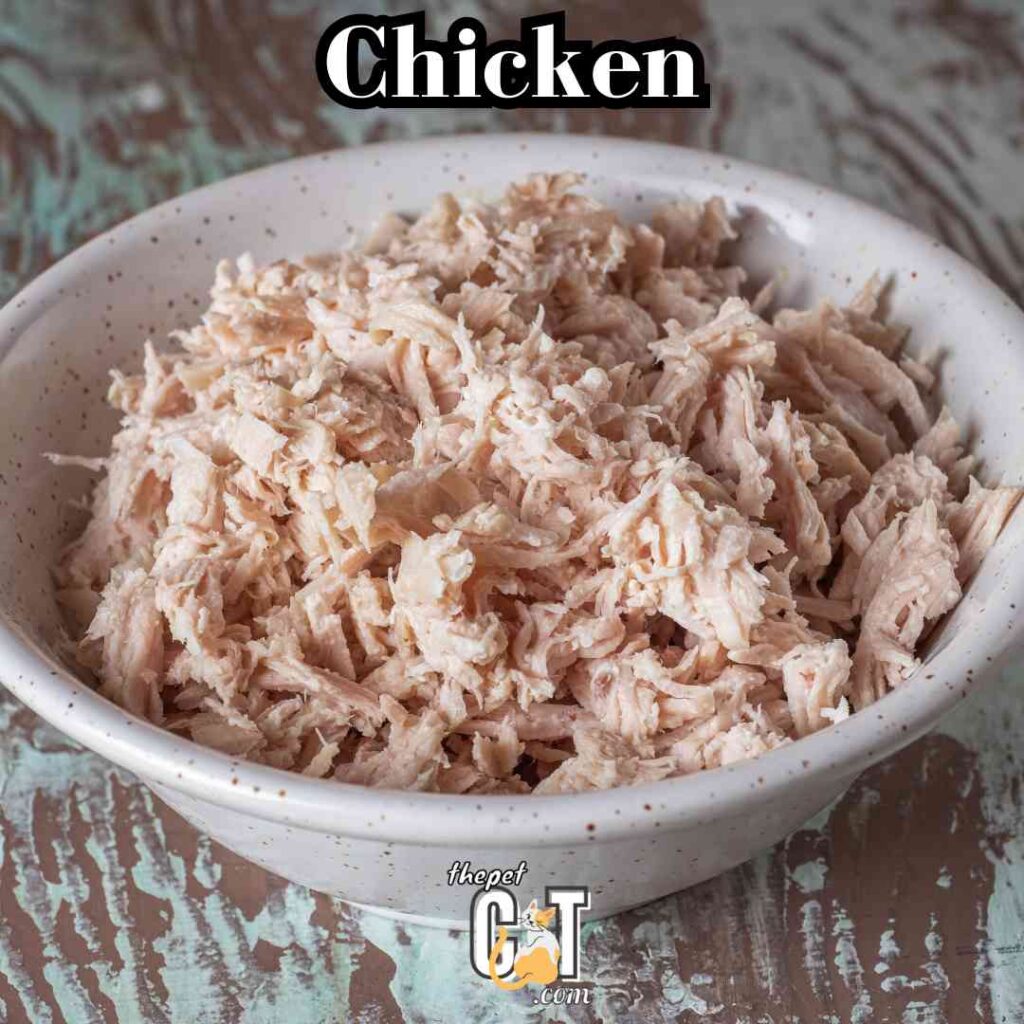
Cooked and boneless chicken is a staple protein source for Maine Coon cats. Its high-quality protein content supports their muscular development and overall health. However, it’s crucial to serve it plain, without any seasonings or additives, to ensure the cat’s safety and well-being.
2. Salmon and Other Fish
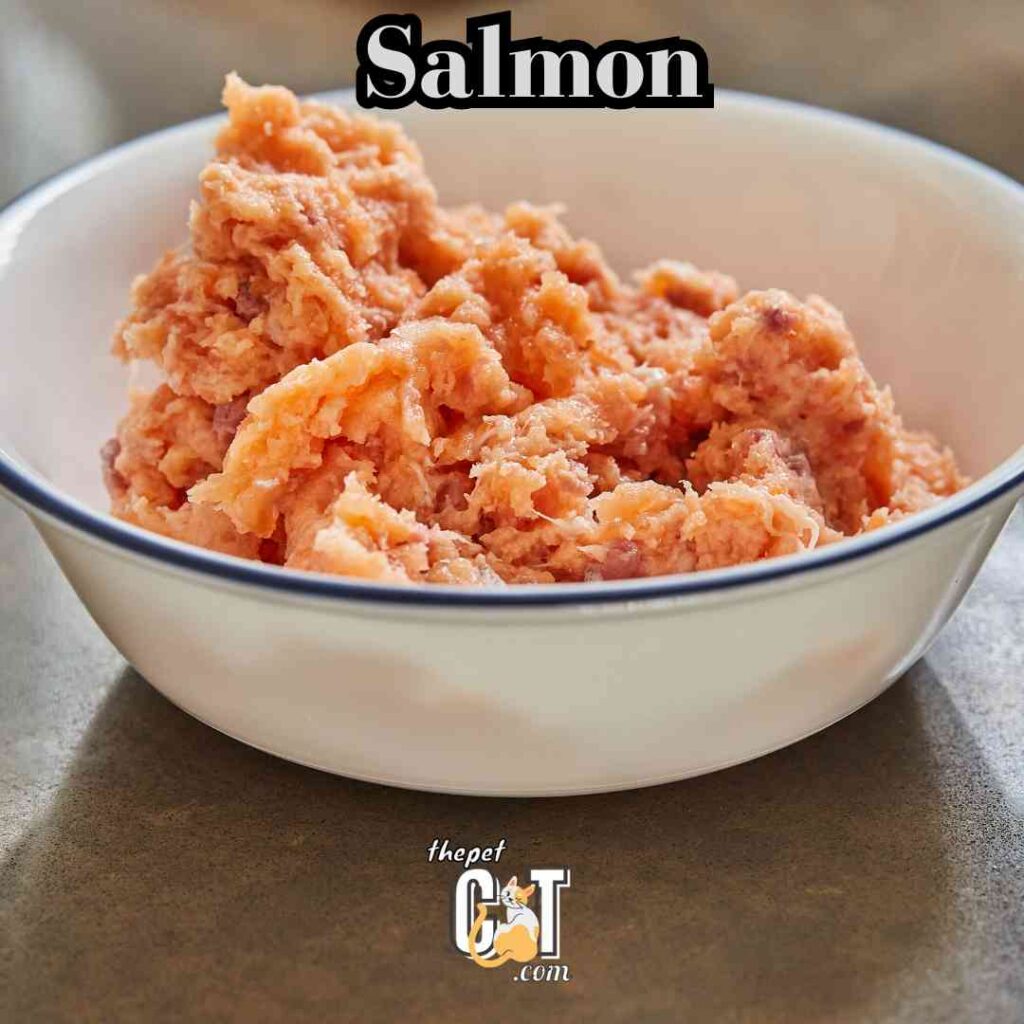
Cooked fish, especially salmon, offers Maine Coon cats vital omega-3 fatty acids crucial for a healthy coat. When serving, ensure it’s thoroughly cooked, boneless, and devoid of any seasonings. These nutrients support their fur’s shine and overall well-being, making fish a valuable addition to their balanced diet when given in moderation.
3. Turkey Liver
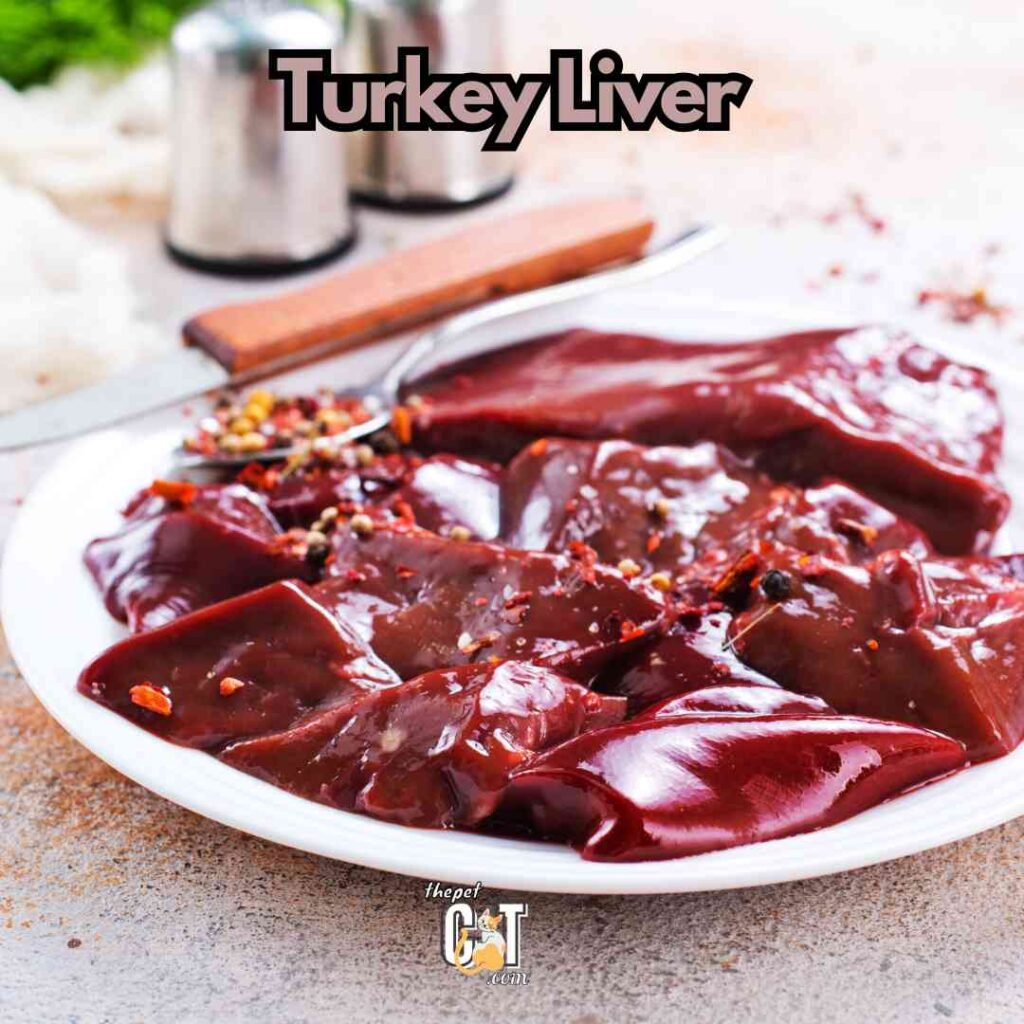
Offering Maine Coon cats turkey liver in moderation can be beneficial due to its rich nutrient content. It contains crucial vitamins and minerals for optimal health. However, it’s crucial to limit the intake to prevent excessive consumption. When served occasionally and in small amounts, turkey liver can contribute positively to their balanced diet, supporting their well-being.
4. Canned Cat Food
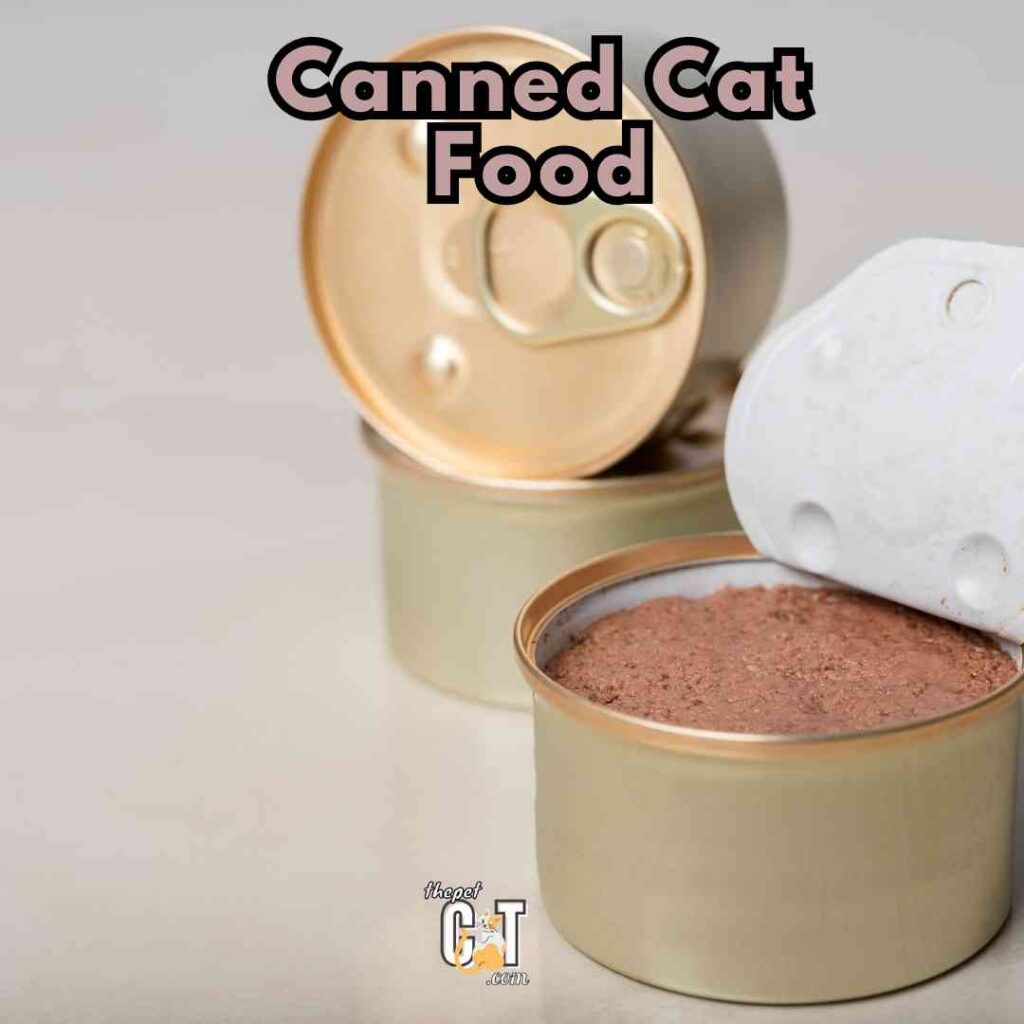
Canned cat food is excellent for Maine Coon cats. It’s packed with balanced nutrition and lots of meat, giving your cat the essentials to stay healthy. Also, it has moisture, which helps keep them hydrated. Choosing good-quality canned food ensures your Maine Coon gets all the vitamins and minerals they need for a happy and healthy life.
5. Dry Cat Food
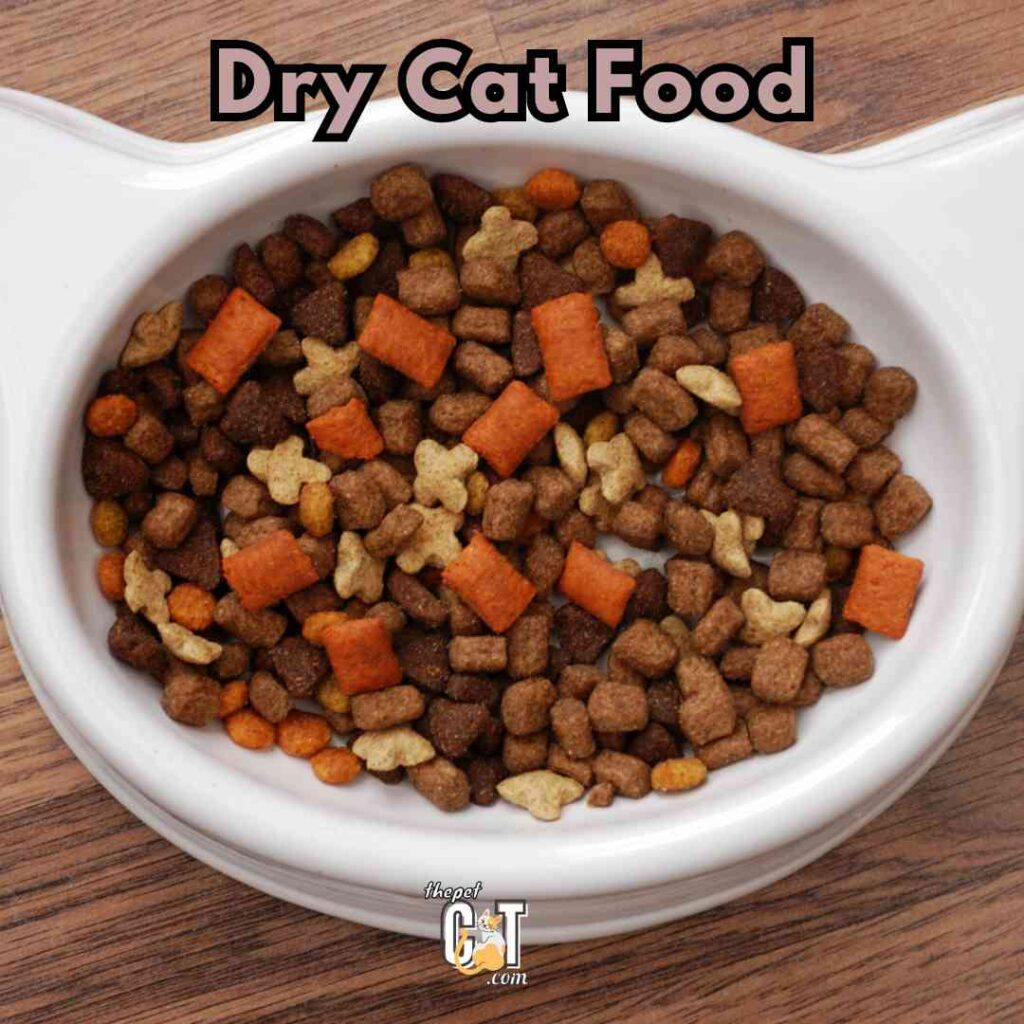
Dry cat food, called kibble, is super handy for Maine Coon cats. It’s full of important nutrients that keep them healthy. Also, chewing on kibble helps their teeth stay clean. Regularly eating this crunchy food gives them all the good stuff they need and helps keep their teeth strong and healthy.
6. Wet Cat Food
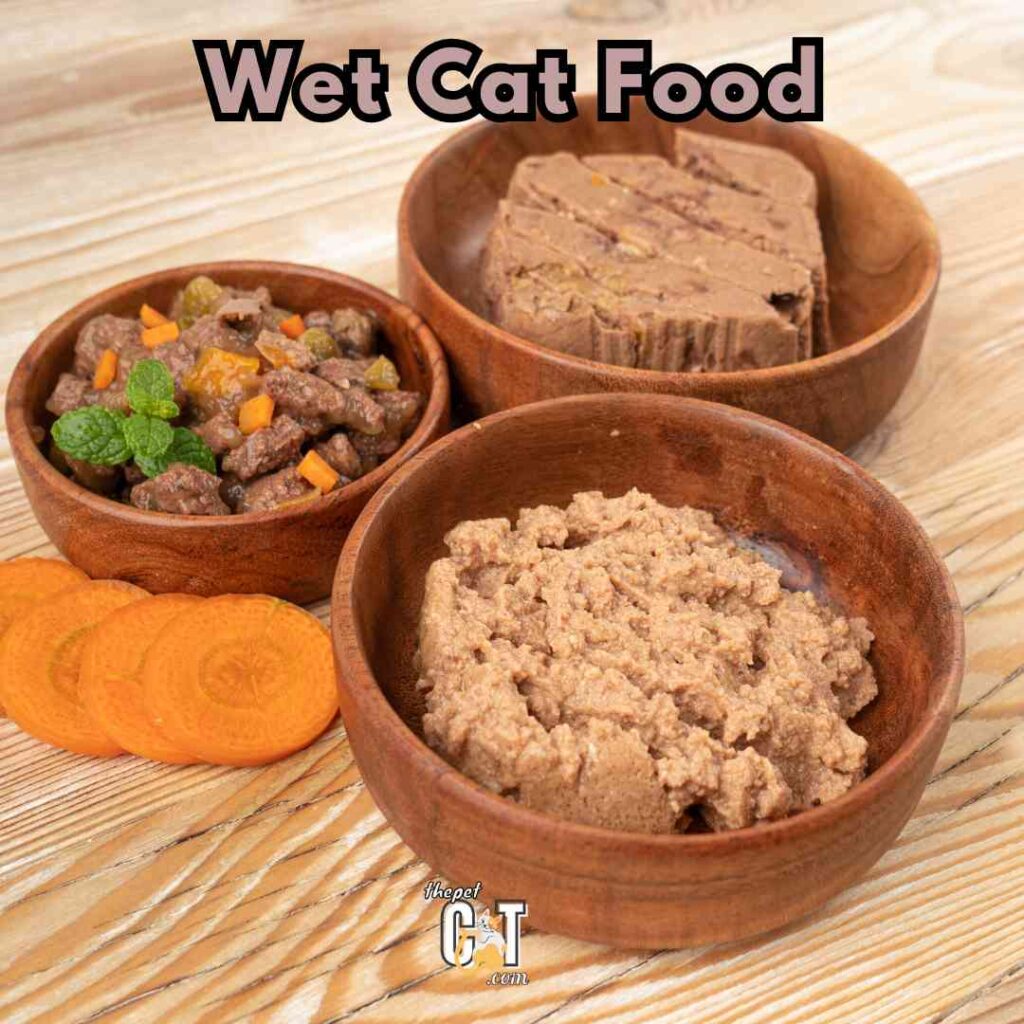
Wet cat food, often called moist cat food, is a tasty and hydrating meal for Maine Coon cats. Packed with moisture, it helps keep them well-hydrated, essential for their health. Plus, cats usually find it super yummy, making mealtime enjoyable. It’s a great way to ensure your furry friend stays refreshed and satisfied.
7. Reptiles
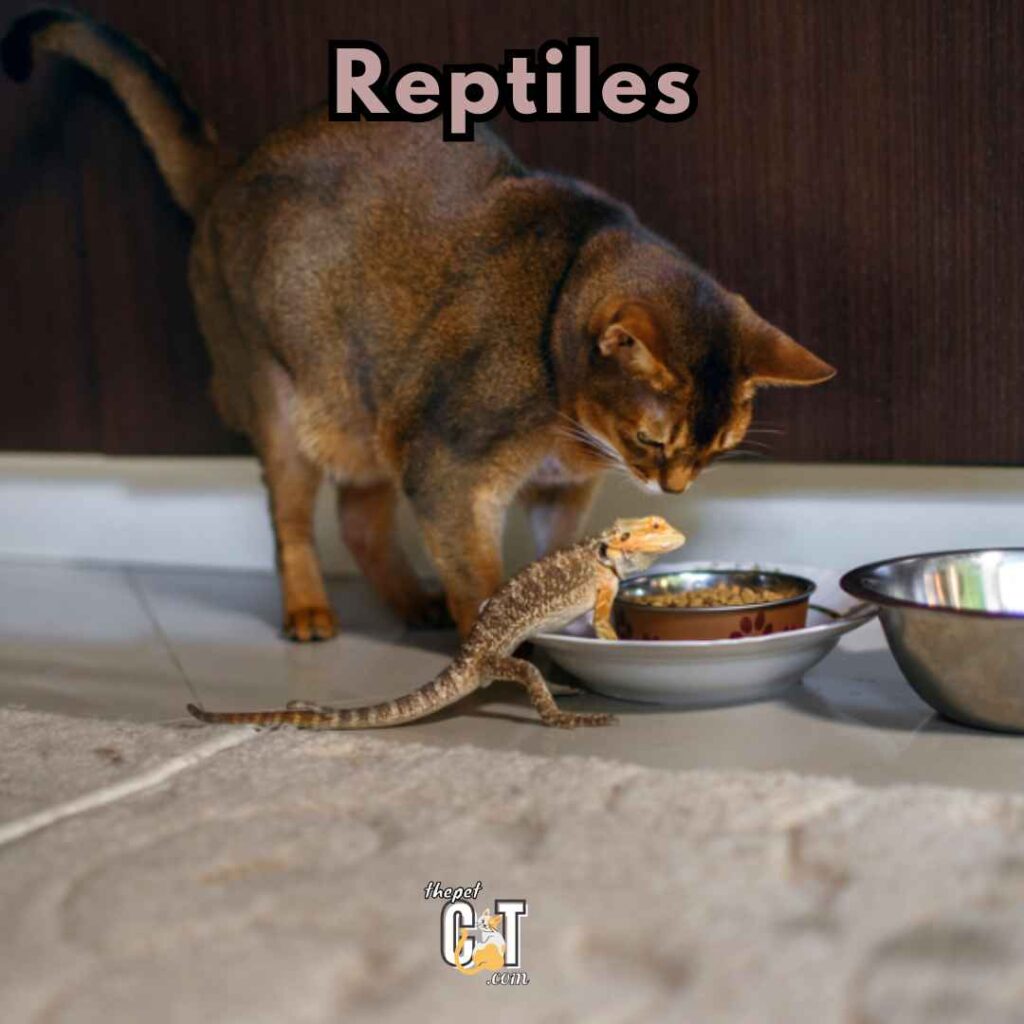
Maine Coon cats, like other felines, might have natural hunting instincts, making them occasionally hunt reptiles like lizards and snakes. This behavior comes from their ancestors. While it’s an instinct, it’s essential to ensure that the reptiles they encounter are not dangerous or toxic, keeping both the cat and the environment safe.
8. Venison
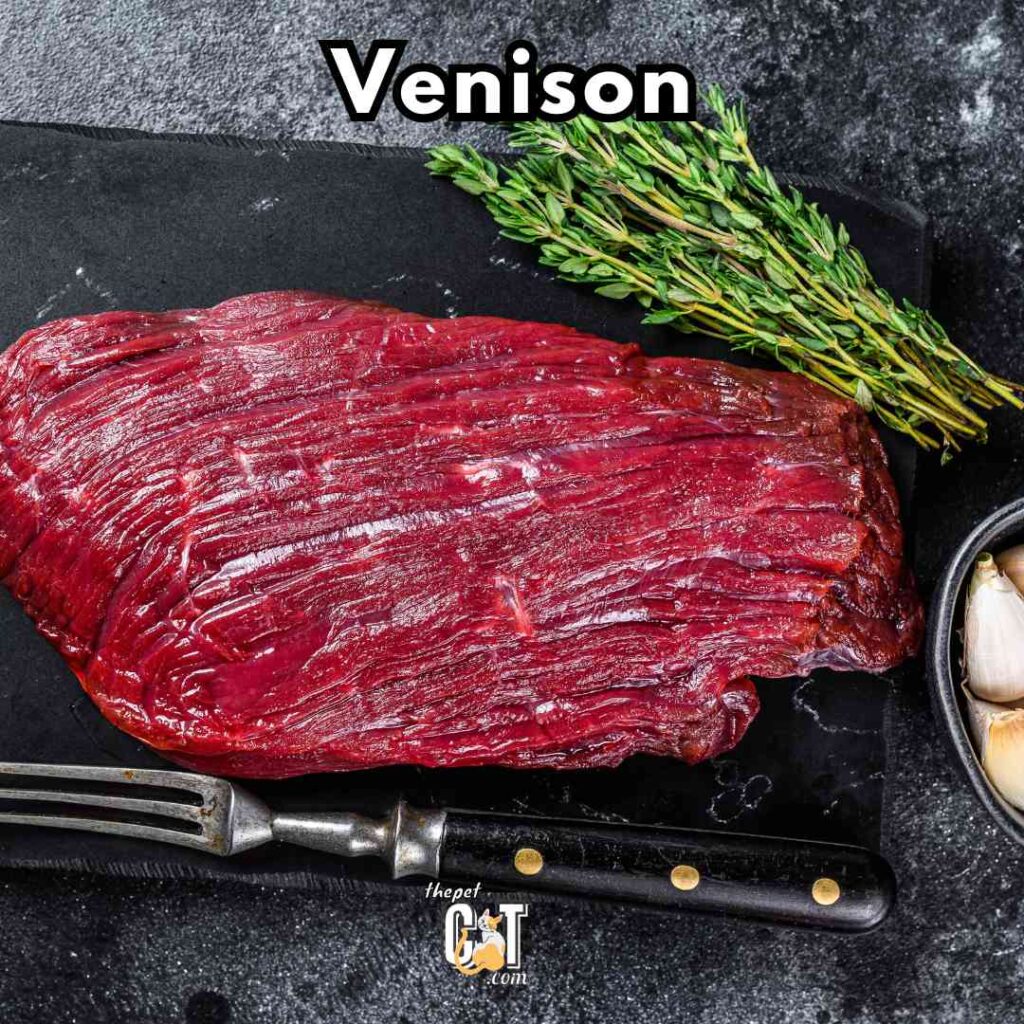
Venison, which is lean deer meat, offers Maine Coon cats a unique protein option. It’s different from their usual fare, providing a novel taste and nutritional variety. When cooked thoroughly and served in moderation, venison can be a healthy addition to their diet. However, always ensure it’s free from bones and seasoning, ensuring the cat’s safety and enjoyment.
9. Fatty Foods and Supplements
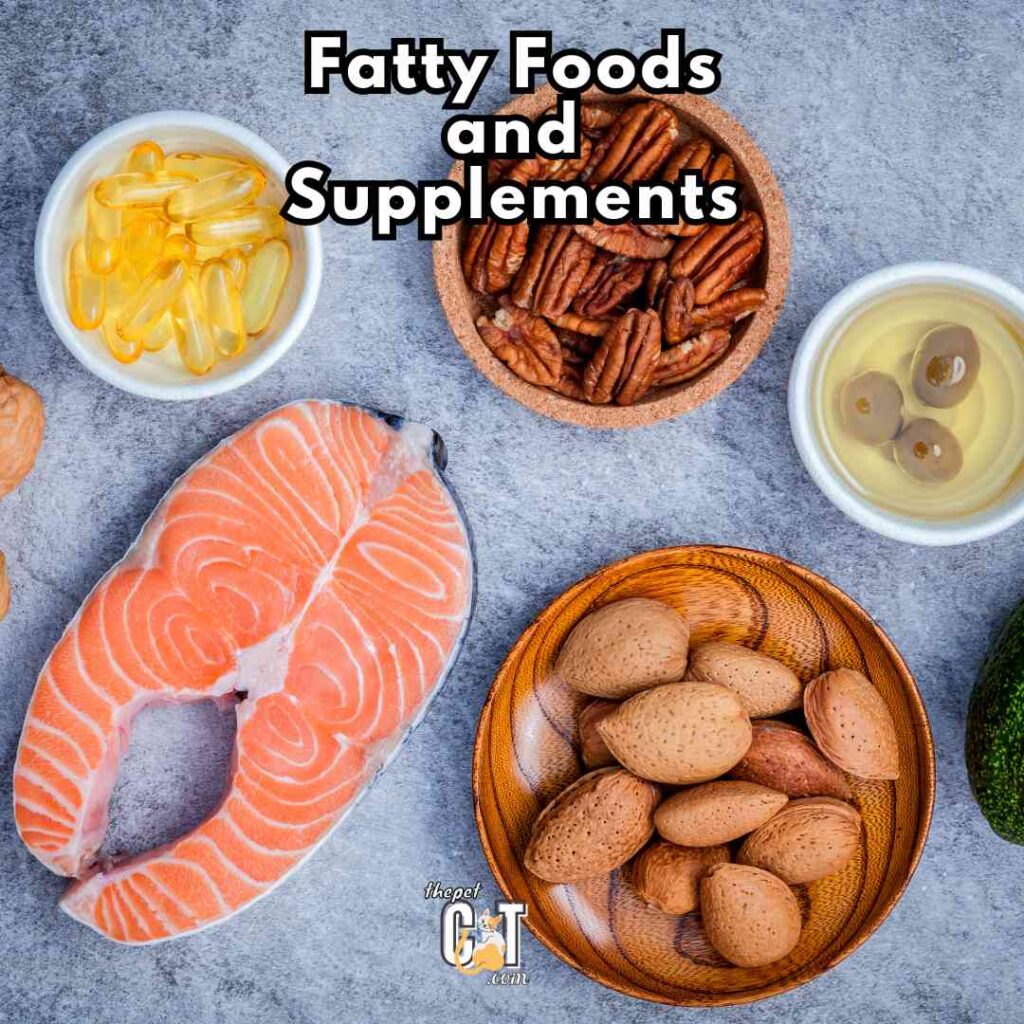
Maine Coon cats need some fat in their diet, but it should be in limited amounts. Too much can lead to health issues. Also, any supplements, like vitamins, should be given only under the guidance of a vet. They can ensure the right balance, keeping your Maine Coon healthy and happy without risking their well-being.
10. Cat Treats
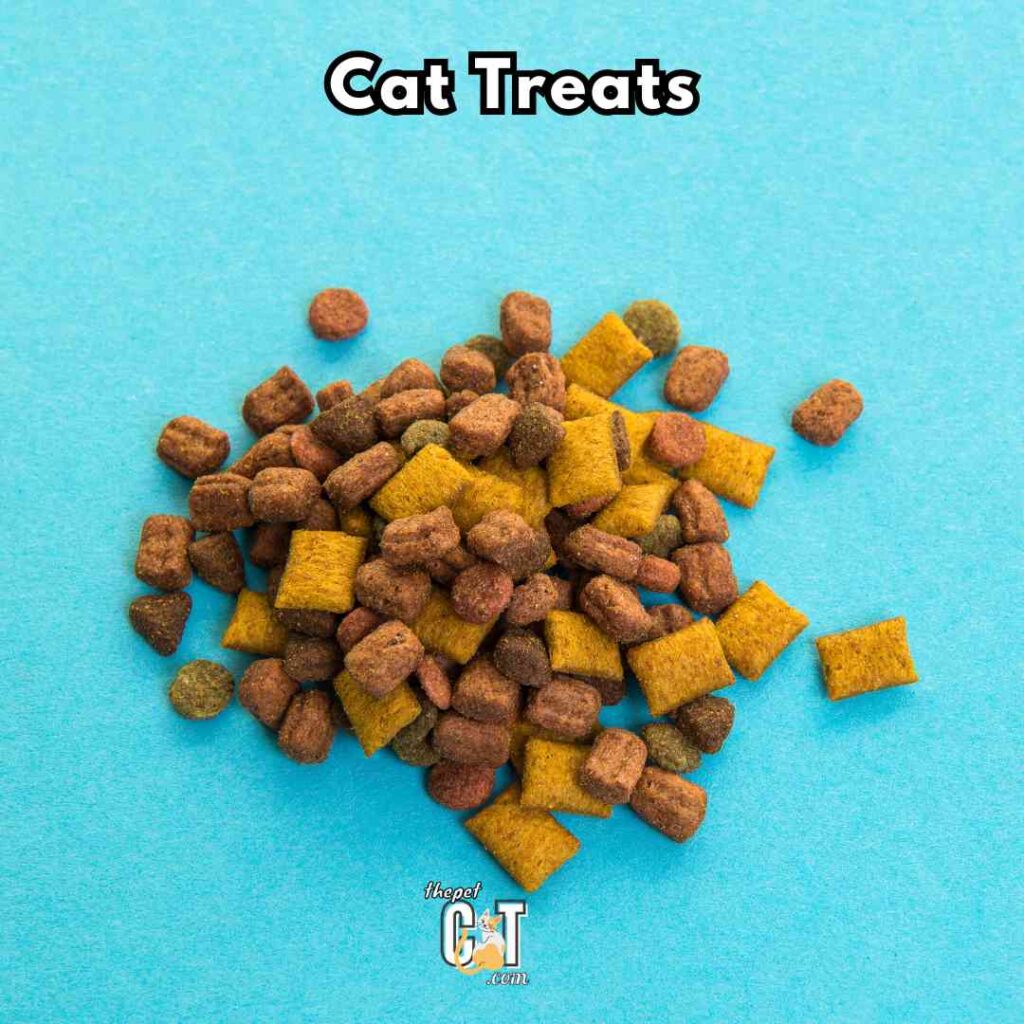
Cat treats, specially designed for feline taste buds, are perfect rewards during training or occasional indulgences. These formulated treats are tasty and offer a small, delightful break from their regular meals. When used properly, they promote positive behavior and strengthen the link between you and your Maine Coon cat.
11. Birds
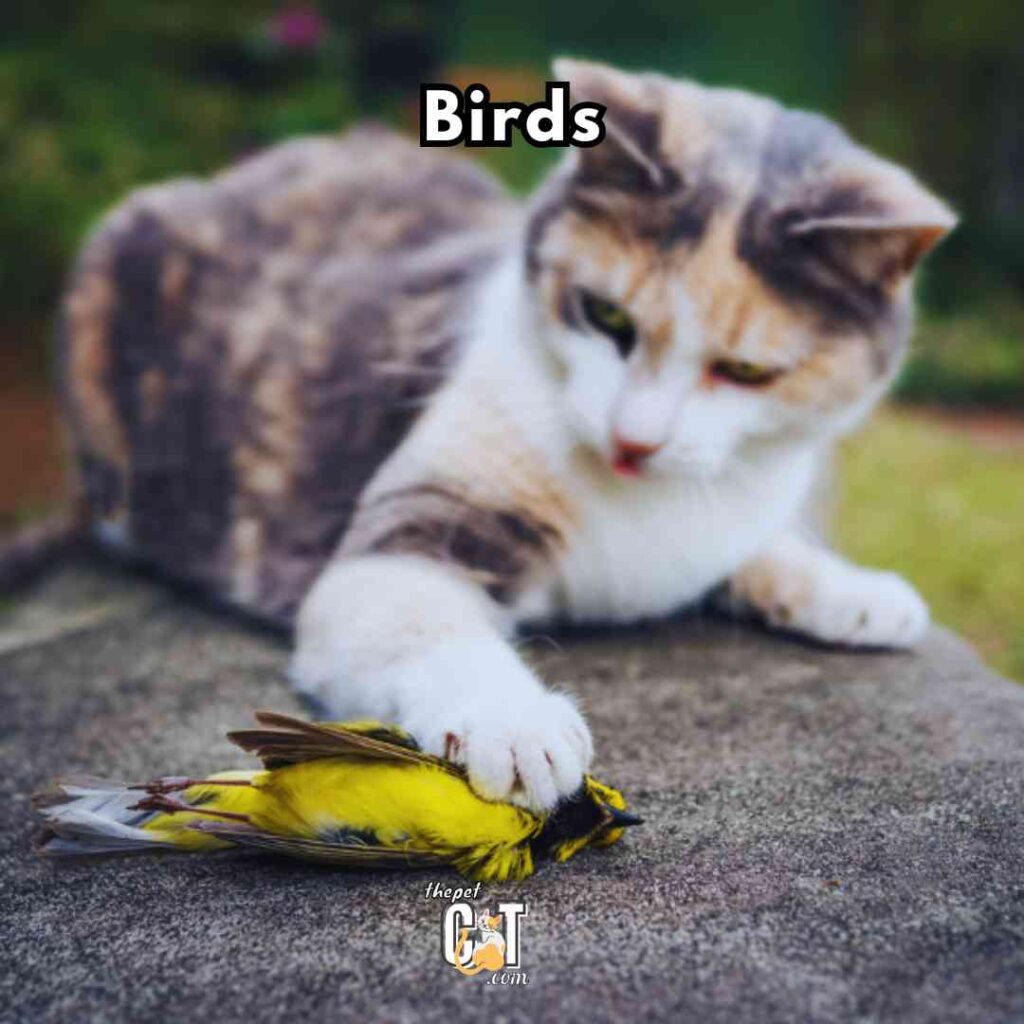
Maine Coon cats are natural hunters, often displaying their instincts by catching small birds. Their ancestors were great hunters, which influenced their behavior. While it’s a common trait, cat owners need to provide an enriched environment indoors to ensure the safety of both the birds and the cats.
12. Rabbit
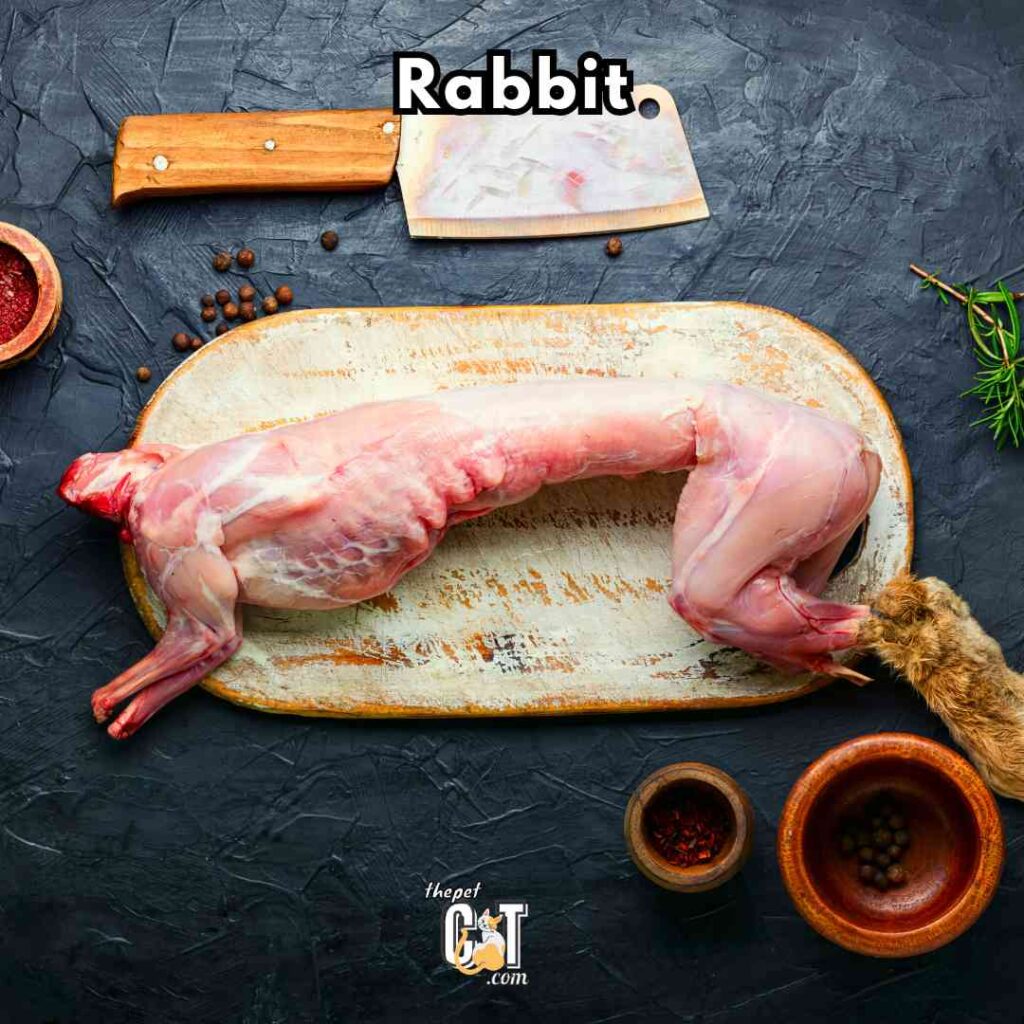
Cooked rabbit meat serves as a wholesome alternative protein source for Maine Coon cats. Offering a change from their regular diet, it provides essential nutrients. When prepared thoroughly and served plain, without bones or seasoning, rabbit can be a tasty treat. However, to ensure your cat enjoys a new food, introduce it gradually and observe their reaction.
13. Small Rodents
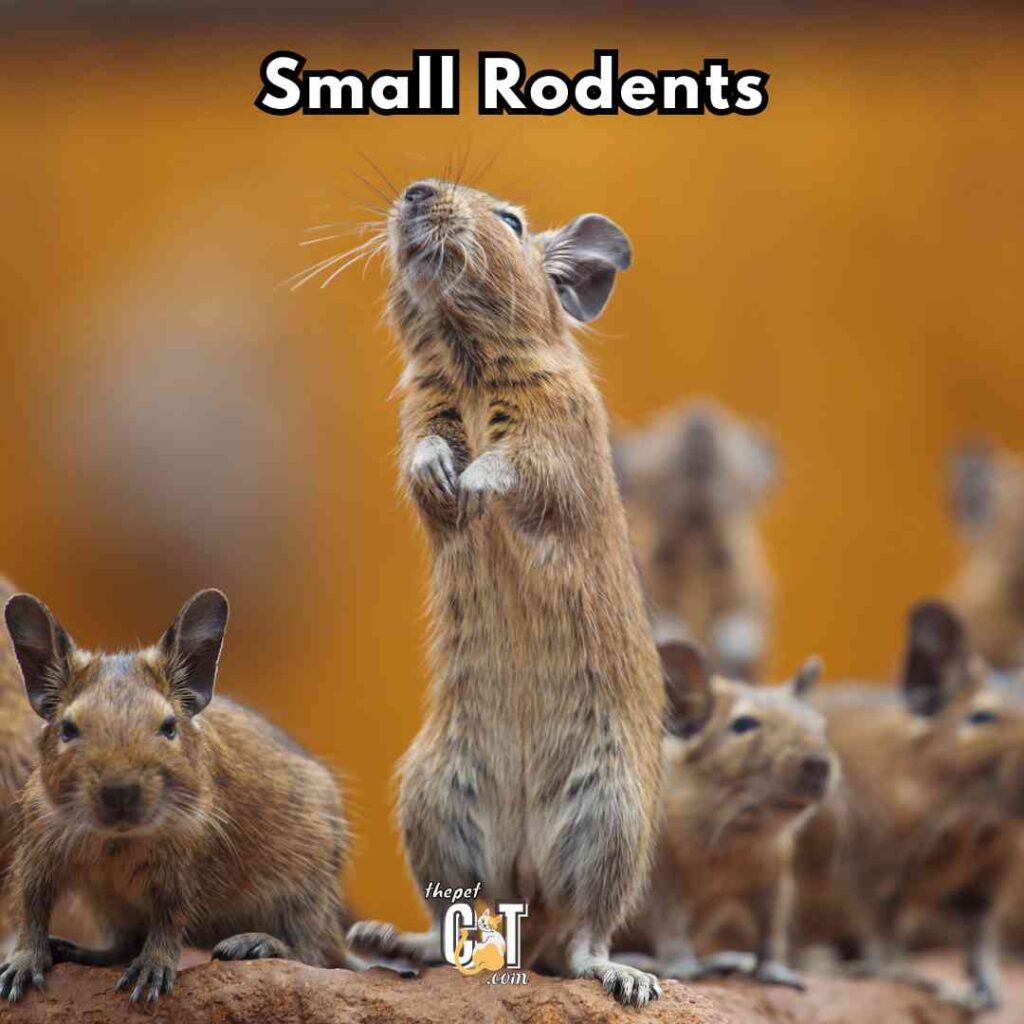
Maine Coon cats love chasing small rodents like mice and rats – it’s in their nature! The inherent hunting instinct stems from their wild origins. So, if you choose coons as pets, confirm they have enough toys and activities indoors. This keeps them happy and prevents any harm to other animals.
14. Small Mammals
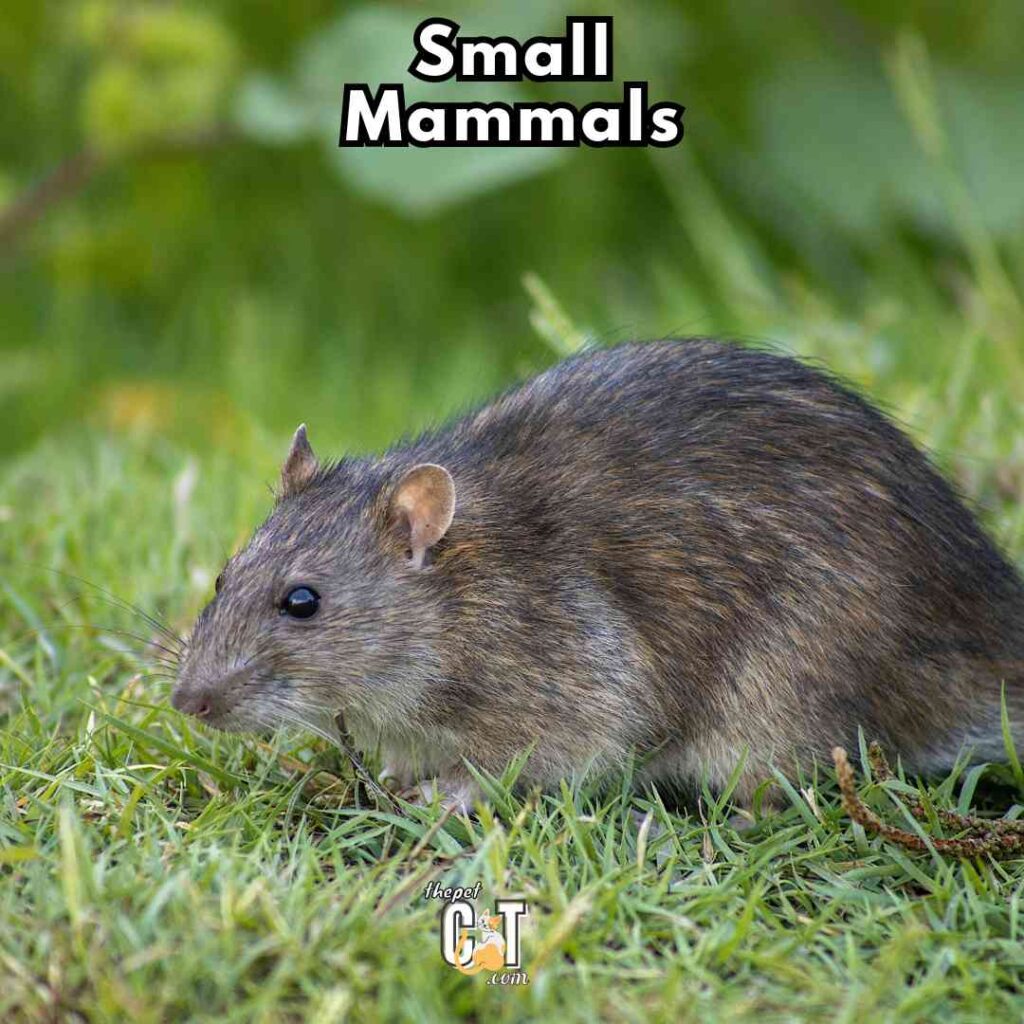
Maine Coon cats are skilled hunters and might target small mammals like squirrels or rabbits. Their instincts drive them to chase these animals. While it’s part of their nature, pet owners should provide engaging indoor activities to fulfill these hunting urges safely. Interactive toys and playtime can keep them stimulated and prevent them from seeking prey outdoors.
15. Insects
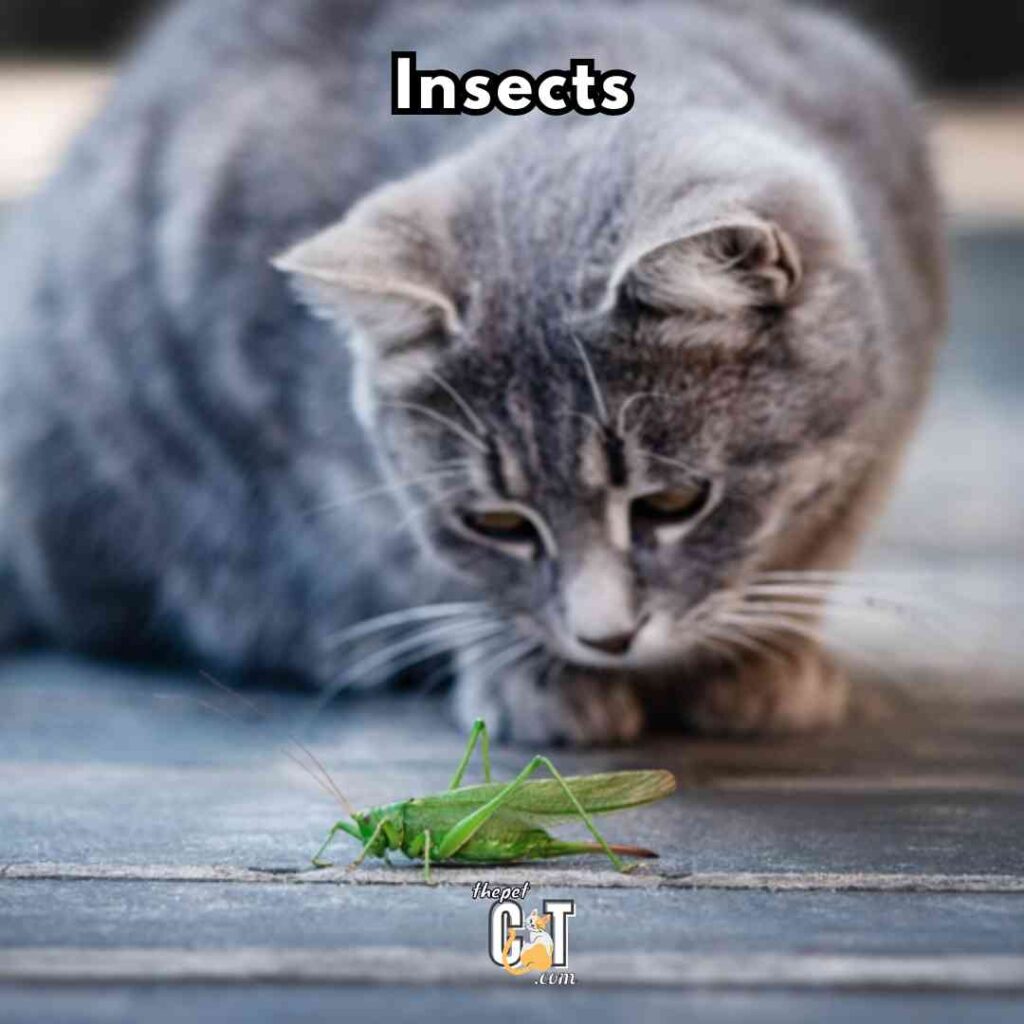
Cats, including Maine Coons, find great joy in chasing and occasionally eating insects. This playful activity offers mental and physical stimulation and fulfills their natural hunting instincts. However, ensuring the insects are harmless and have not been in contact with pesticides is crucial. Supervised bug play might pleasure your kitty friend.
Read More: Do Maine Coon Like Water
18 Toxic Foods for Maine Coon Cat
Certain foods can be toxic to Maine Coon cats and need to be avoided. They are:
Chocolate
Chocolate is extremely harmful to Maine Coon cats due to substances like theobromine and caffeine. Even small amounts can disrupt their nervous system and heart functions, leading to symptoms like vomiting, rapid breathing, and increased heart rate. In severe cases, it can cause seizures and even be fatal. It’s essential to keep chocolate out of their grasp for their safety.
Large Amounts of Tuna Fish
Feeding Maine Coon cats excessive amounts of tuna fish is risky. Consuming large amounts of tuna can cause mercury poisoning due to its high levels. Additionally, an all-tuna diet can cause nutritional imbalances, specifically lacking essential nutrients. Moderation is key; occasional tuna treats are fine, but a varied diet with balanced cat food ensures their overall health and well-being.
Alcohol
Even a tiny bit of alcohol can make Maine Coon cats very sick. It doesn’t take much to cause intoxication, leading to serious health problems. Vomiting, lack of coordination, and even unconsciousness are symptoms. It’s vital to Keep alcohol away from pets for their security and wellness.
Sugary Products
Sugary treats can harm Maine Coon cats. They often lead to obesity, making cats overweight and unhealthy. Also, sugary products can damage their teeth, causing cavities and gum issues. To preserve good dental health and prevent obesity, avoid offering kids sweets or sugary foods.
Milk and Dairy Products
Most Maine Coon cats are lactose intolerant as adults, meaning they can’t digest milk properly. If they have milk or dairy products, it can lead to stomach problems like diarrhea and discomfort. To maintain their digestive health, avoid giving them milk.
Read More: Can Cats Eat Cheese Balls?
Raw Meats
Feeding Maine Coon cats raw meat carries serious risks. Raw meats often contain harmful bacteria like Salmonella or E. coli, causing severe food poisoning. These bacteria can cause severe cat illnesses, including diarrhea, vomiting, and other health issues. To keep them safe, it’s best to always cook meat thoroughly before feeding.
Onions and Garlic
Onions and garlic are extremely harmful to Maine Coon cats. These chemicals destroy red blood cells, causing anemia. Even small amounts can be dangerous, causing weakness, vomiting, and difficulty breathing. It’s crucial to ensure these ingredients are completely avoided in their diet to maintain their health and well-being.
Raw Eggs
Feeding Maine Coon cats raw eggs is risky. Raw eggs can contain dangerous bacteria such as Salmonella and E. coli, which can cause serious diseases. These bacteria lead to stomach issues, vomiting, and diarrhea. To keep cats safe, it’s essential to always cook eggs thoroughly before giving them as a treat.
Grapes and Raisins
Grapes and raisins pose a significant risk to Maine Coon cats. Even modest doses can cause renal failure, posing major health risks. Symptoms include diarrhea, vomiting, and tiredness. It’s vital to keep all grapes and raisins out of their reach to ensure their safety and prevent any accidental ingestion.
Gluten
Maine Coon cats can have issues with gluten. Some cats may be sensitive or allergic to gluten, a protein present in grains such as barley and wheat. Eating foods with gluten can lead to digestive problems, skin irritations, or discomfort. To avoid these concerns, it’s recommended to choose gluten-free cat foods.
Mushrooms
Certain mushrooms are very dangerous for Maine Coon cats. Ingesting these types can lead to severe toxicity, causing organ failure and other life-threatening issues. Signs include diarrhea, vomiting, convulsions, and death. It’s essential to keep all mushrooms, wild or cultivated, away from cats to prevent accidental poisoning and ensure their well-being.
Avocados
Avocados are hazardous for Maine Coon cats. They contain a poisonous substance called persin. Consuming persin can produce stomach distress, vomiting, and potentially severe reactions in rare situations. It’s crucial to keep avocados, including guacamole, away from cats to prevent any adverse effects on their health.
Caffeinated Drinks
Caffeinated drinks are risky for Maine Coon cats. Even little drinks might cause restlessness, rapid heartbeat, and tremors. These symptoms indicate caffeine toxicity, which can be fatal. Cats are highly sensitive to caffeine, making it crucial to keep all caffeinated beverages, like coffee and tea, far from their reach.
Nuts
Maine Coon cats cannot consume certain nuts, including walnuts and almonds. Ingesting these nuts can lead to digestive problems and potentially cause pancreatitis, a painful inflammation of the pancreas. It’s essential to keep all nuts out of their reach to avoid any discomfort or serious health issues.
Human Medicines
Human medicines are extremely dangerous for Maine Coon cats. Many common medications, even in small amounts, can be toxic to them, causing various health issues. It’s crucial to store all medicines securely, out of their reach, and avoid giving them any human medications without specific veterinary guidance to ensure their safety and well-being.
Yeast Dough
Yeast dough is hazardous for Maine Coon cats. When ingested, the dough can expand in the stomach, causing severe pain or even rupture. This happens because yeast ferments, creating gas. It’s crucial to keep all unbaked dough away from cats to prevent any discomfort or potentially life-threatening situations.
Baby Food
Baby food can be harmful to Maine Coon cats. Onion powder in baby foods is harmful to cats and may contribute to serious health issues like anemia. It’s vital to check the ingredients carefully and avoid giving cats any baby food to ensure their safety and well-being.
Dog Food
Feeding Maine Coon cats and dog food is not recommended. Cats require important nutrients, which dog food lacks. Cats require nutrients like taurine, which are lacking in dog diets. Regular consumption can lead to nutritional deficiencies, impacting their overall well-being. Always opt for cat-specific food to ensure proper nutrition.’
How Much Do Maine Coon Cats Eat?
Maine Coon cats require different calorie intake, ranging from 190 to 875, depending on their size. To fulfill these needs, offer 9 ounces of wet food or 3 ounces of dry food daily. Regular exercise is essential. Without it, Maine Coons might develop weight problems. A balanced diet and activity ensure their long-term health. Let’s see their weight-wise calorie intake in the table below:
Weight Based Maine Coon Cat Calorie Needs
| Weight | Minimum Calorie | Maximum Calorie |
| 3.6kg | 192 | 280 |
| 4.1 kg | 216 | 315 |
| 4.5 kg | 240 | 350 |
| 5 kg | 264 | 385 |
| 5.4 kg | 288 | 420 |
| 5.9 kg | 312 | 455 |
| 6.4 kg | 336 | 490 |
| 6.8 kg | 360 | 525 |
| 7.3 kg | 384 | 560 |
| 7.7 kg | 408 | 595 |
| 8.2 kg | 432 | 630 |
| 8.6 kg | 456 | 665 |
| 9.1 kg | 480 | 700 |
| 9.5 kg | 504 | 735 |
| 10 kg | 528 | 770 |
How Much Should You Feed A Maine Coon Cat?
Feeding a Maine Coon cat varies based on its weight, age, and activity level. Generally, adult Maine Coons weigh 13-18 pounds. They need around 250-350 calories per day, split between high-quality cat food. Contact a veterinarian to determine the appropriate portion amount for your cat’s needs.
Maine Coon Feeding Chart: Portion Size By Age
| Age | Type of Food | Amount Per Feeding | Of Feedings Per Day |
| 1 week | Mother’s milk or milk substitute | N/A | As needed |
| 2 Weeks | Mother’s milk or milk substitute | 6 to 10 ml | for 2-3 hours |
| 3 Weeks | Mother’s milk or milk substitute | 10 to 14 ml | for 3-4 hours |
| 4 Weeks | Mother’s milk or milk substitute | 18 ml | for 4-5 hours |
| 5 Weeks | Kitten food and mother’s milk | 20 – 22 ml | for 5-6 hours |
| 6 Weeks | Kitten food, dry and wet | 1/8 to 1/4 a cup | 4 – 5 meals |
| 7 Weeks | Kitten food, dry and wet | 1/8 to 1/4 a cup | 4 – 5 meals |
| 8 Weeks | Kitten food, dry and wet | ⅛ to ¼ a cup | 4 – 5 meals |
| 9 Weeks | Kitten food, dry and wet | ⅛ to ¼ a cup | 4 – 5 meals |
| 10 Weeks | Kitten food, dry and wet | ¼ a cup | 3 – 5 meals |
| 11 Weeks | Kitten food, dry and wet | ¼ a cup | 3 – 4 meals |
| 12 Weeks | Kitten food, dry and wet | ¼ a cup | 3 – 4 meals |
| 4 to 6 Months | Kitten food, dry and wet | ¼ to ½ a cup | 4 meals |
| 6 to 9 Months | Kitten food, dry and wet | ½ a cup | 4 meals |
| 9 to 12 Months | Adult food, and kitten food mix | ½ a cup to 1 cup | 3 – 4 meals |
| 1 Year | Adult food, dry and wet | 1 to 1 & ½ a cup | 2 – 3 meals |
| 1 to 3 Years | Adult food, dry and wet | 1 to 1 & ½ a cup | 2 – 3 meals |
Do Maine Coons Need Special Food?
Yes, Maine Coons need a special diet due to their large size and specific nutritional needs. They thrive on animal protein-based food, emphasizing high protein levels to support their active lifestyle. Optimal choices include low-grain dry, wet, raw, or a mix. Regular dietary review ensures they get the right balance of carbohydrates, protein, nutrients, and minerals for a long, healthy life. Owners should pay close attention to their nutritional needs to ensure their well-being.
FAQs
How Much Should A Maine Coon Cat Weigh?
Maine Coon cats come in different sizes. Adult females usually weigh between 4-6 kg (8.8-13.2 lbs), while males weigh around 5-9 kg (11-19 lbs). Remember, every cat is unique, so regular vet check-ups help ensure they stay at a healthy weight for their size.
How Long Do Maine Coons Live?
Maine Coon cats typically live between 12-15 years on average. Their lifespan depends on factors like health, diet, and exercise. While many reach 20 years, the oldest known Maine Coon, Rubble, lived to 31. Regular vet check-ups and a healthy lifestyle can help ensure a long, happy life for these beloved cats.
Do Maine Coons Eat More Than Other Breeds?
Yes, Maine Coon cats eat more than other breeds due to their large size. Their muscular bodies require extra food for optimal health and happiness. Providing them with a diet tailored to their size and energy needs is essential, ensuring they stay well-fed and content.
Are Maine Coon Cats Picky Eaters?
Yes, Maine Coon cats can be picky eaters, but this varies among individuals. Some may have specific food preferences, while others are more accepting. Introducing diverse, high-quality cat foods during their early stages can encourage a broader palate. Being patient and offering different options can help cater to their tastes and preferences.
Final Verdict
Maine Coon cats have unique dietary needs due to their size and energy levels. A balanced diet of high-quality cat food rich in animal protein is essential. This can include wet, dry, or raw food options. It’s vital to avoid human foods, especially those toxic to cats, and to always provide fresh water.
Regular vet check-ups ensure their nutritional requirements are met. Additionally, considering their individual preferences and introducing variety can keep them engaged with their meals. For in-depth guidance on Maine Coon cat nutrition and health, read our detailed article. Your cat’s well-being starts with the right knowledge.
You May Also Like to Read:

